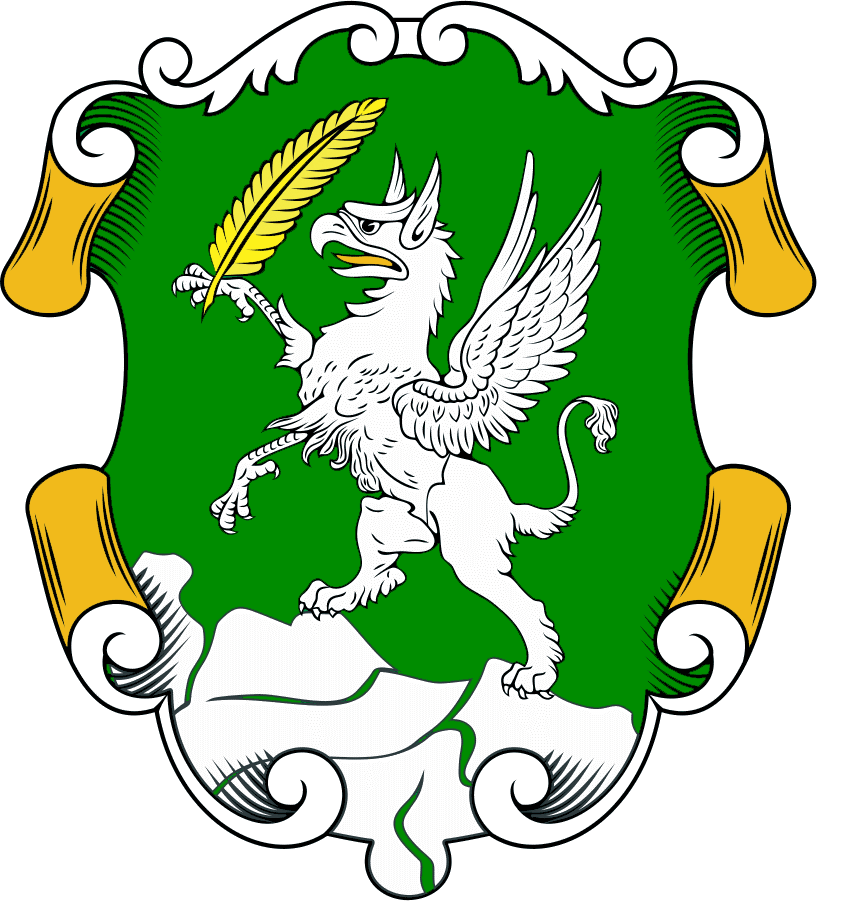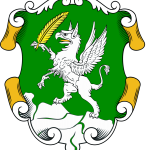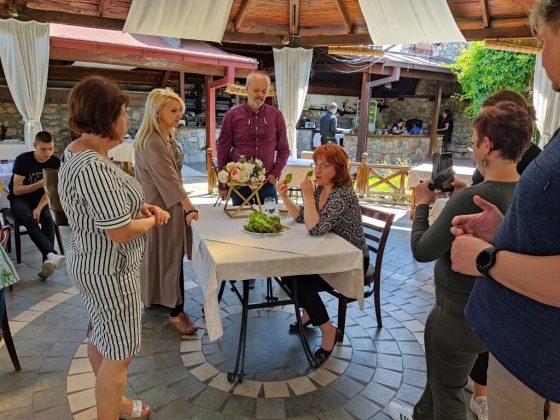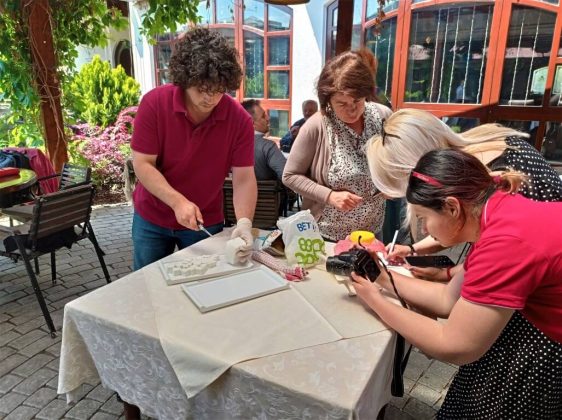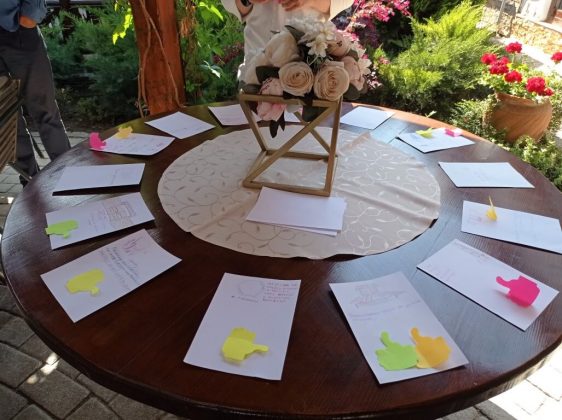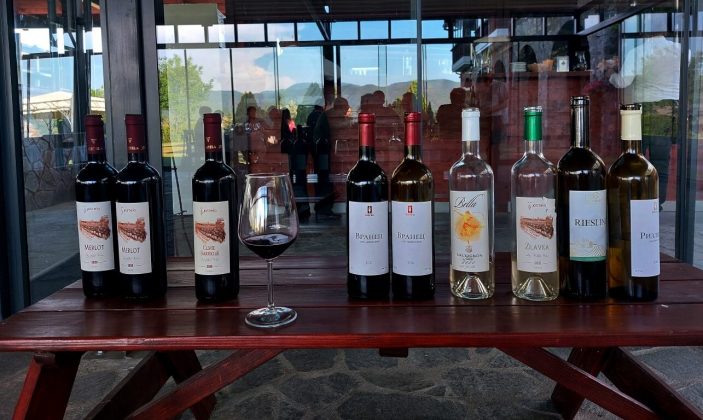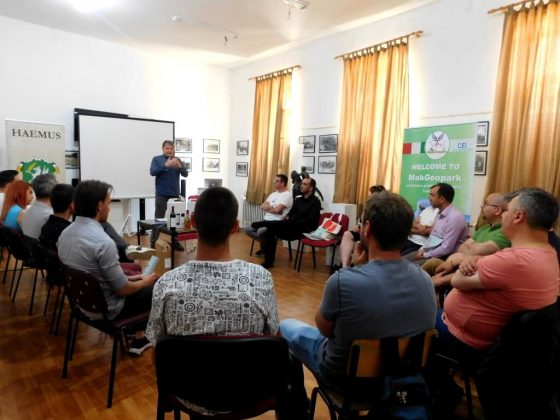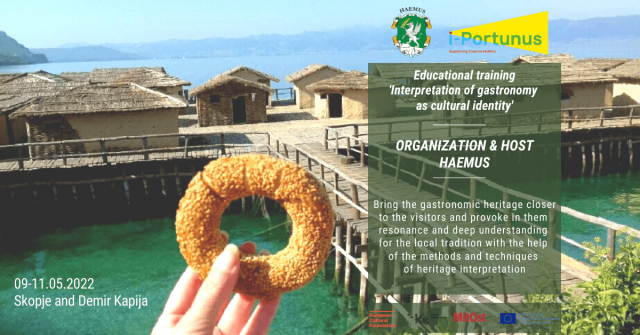
The project ‘Interpretation of gastronomy as local identity’ supported by the EU funded program i-Portunus was held in Macedonia between 08-15.05.2022.
The project was created by three team members Vasilka Dimitrovska, the director of HAEMUS, Dubravko Fijacko (Croatia, physical mobility) and Janja Sivec (Slovenia, virtual mobility). It also comprised of several members of HAEMUS team as a host organization. HAEMUS was engaged mostly in organization, logistics, preparation of the brochures and communication with participants, local communities, municipalities and media, while the team members were giving lectures both in person and online.
Within the project we organized two separate events, a 3-day training in Skopje and one-day workshop in Demir Kapija. We have started the project designing the informative brochures both for the training and the workshop. Than we created Google document application form where participants applied, all of these combined with information shared on HAEMUS’ social media (Facebook and Instagram).
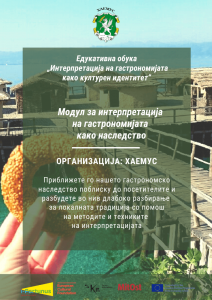
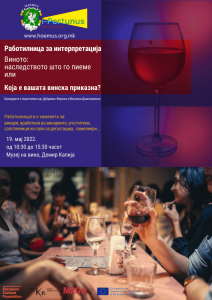
As a venue for the 3-day gastronomy training the ‘Oreov lad’ in Skopje was chosen, since the complex also include a gastronomical school. The three day educational training in Skopje with around 20 participants was focused on heritage interpretation toward sustainable development of cultural and natural tourism. Learning through the heritage interpretation, the participants had the opportunity to improve their knowledge and skills for creative visualization and communication in order to create cultural and tourist products that will provoke the experience of the guests giving the deeper meaning to the heritage and contributing to the sustainable development of the local communities.
For the one-day wine workshop in the wine region we choose the ‘Wine Museum’ in order to raise the event to a higher institutional level giving a visibility in local and national media. The workshop in the small town of Demir Kapija, the heart of the Tikvesh wine region, was organized in partnership with the municipality itself, including more than 15 small family wineries as participants. The main aim was to discover new opportunities through interactive and creative exercises and to implement ideas for application of new tourism products, as well as to improve existing services and to present their products in a new light.
We carefully managed the communication and press release with the Macedonian media and the coverage was very satisfying. The second event was followed by the reporter of the national Macedonian Informative Agency producing an article as an overview of the workshop in which the journalist herself participated.
,,Вино – наследството што го пиеме” – работилница во Демир Капија
In general, we introduced people in Macedonia with the heritage interpretation engaging especially local gastronomic community in Skopje and in the Tikvesh wine region.
One of the biggest benefits was the great inclusion of the participants, the selfless sharing of their knowledge and skills as well as the involvement of the local community in an attempt to find a common module for cooperation that can change the image of an entire region without small businesses being a direct competition to each other. Both the training and the workshop were intended for those who want to expand their circle of visitors with a new, creative and efficient approach, thus increasing their sales channels, as well as for those who are professionally engaged in a certain business which touches the natural or cultural heritage to a great extent, but is primarily focused on local gastronomy. We were very lucky that the members of the ‘Slow food Macedonia’ recognized the potential of the project. They spread the news about it thought-out its own network, so many of their members took part in both events.
This gastronomic training module was designed by Dubravko Fijačko (who was also a trainer for both events) and his Eno-Gastro team within Interpret Europe. It is intended for all people across Europe who work in the field of tourism and catering and who create and visualize gastronomic products based on natural and cultural heritage.
